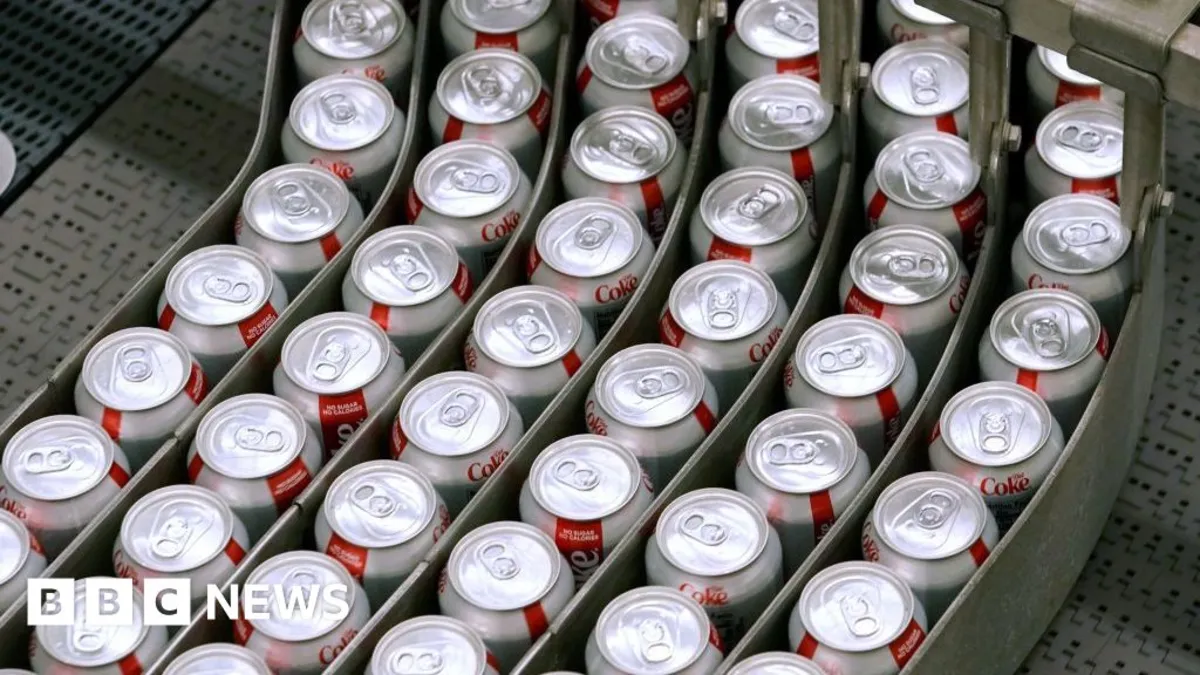
A significant 25% tax will soon be levied on all imports of steel and aluminium into the United States, putting an end to the current exemptions for major trade partners like Canada, Mexico, Brazil, and the European Union. This move, announced by President Donald Trump, is expected to take effect next month and has raised concerns across various industries.
The expanded tariff measures mean that numerous US businesses intending to import these metals will face increased costs. There is a potential risk that companies will transfer these additional expenses, partially or wholly, onto consumers. Given that steel and aluminium are essential components in many products, the cost of various goods may increase significantly.
Currently, around 70% of the steel used in the US for manufacturing food cans is imported from countries such as Germany, the Netherlands, and Canada, as reported by the Can Manufacturers Institute (CMI). After President Trump initiated tariffs on steel in 2018, many can-makers were granted exclusions due to the limited domestic production of the specific steel required for cans.
Since then, steel manufacturers have reduced production further, leading to price hikes. The CMI, along with large food companies like General Mills, Del Monte, and Goya, expressed concerns to the Trump administration, highlighting that without exemptions, the cost of grocery items, especially canned foods made in the US, is likely to rise.
While the intent behind these tariffs might be to protect the US steel industry, CMI President Robert Budway emphasizes that they could undermine food security and supply resilience for American canned goods. Similarly, the aluminium sector, including brewers and fizzy drink manufacturers like Coca-Cola, warns of potential cost increases leading to higher consumer prices.
Coca-Cola's Chief Executive, James Quincey, reassured investors that the company can adapt to these changes, although cost implications remain a concern. Despite hopes from various sectors for exemptions, Trump has insisted that no exceptions will be granted this time, neither for specific products nor countries.
The automotive industry, including giants like Ford and General Motors, previously alerted that similar tariffs during Trump's first term added approximately $1 billion to their expenses. Analysts from Morningstar estimated that the tariff costs then translated to a 1% price increase, or roughly $300, for consumers. This time, the financial impact could be similar.
David Whiston, an analyst at Morningstar, indicated that while affordability pressures in the market could limit how much cost is passed to consumers, some increase is anticipated. Michael Wall from S&P Mobility noted that the more significant impact could come if Trump imposes tariffs on all goods from Canada and Mexico, which could notably affect consumer prices.
Ford's Chief Executive, Jim Farley, expressed concerns at a business conference, stating that Trump's recent tariff decisions are causing substantial cost and operational disruptions. According to TD Economics, prices for cars could surge by about $3,000 if blanket tariffs on imports from Mexico and Canada are enforced.
As these new tariffs are poised to take effect, industries across the board are bracing for the economic impact, with many hoping for potential policy reversals or adjustments in the near future.